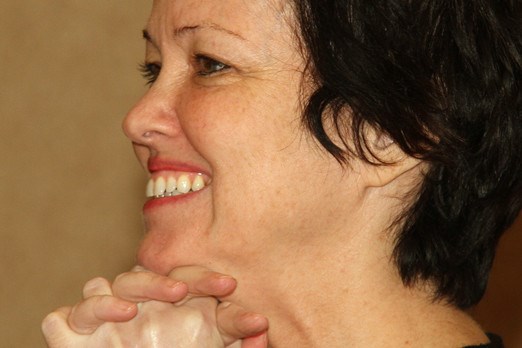Amina Abu-Bakare has spent a lifetime helping others.
As a mother, she spent much of her prime raising her children, volunteering for several organizations and, later, getting an education. As she entered her 50s, Abu-Bakare, armed with a freshly acquired MBA, decided it was time to enter the workforce. But the jobs didn’t materialize.
Abu-Bakare, part of a packed house at Thursday’s Older and Experienced Worker Forum held Thursday at a local hotel, said she feels she part of a growing number of people who have plenty to offer employers, if just given the chance.
"Even though we’ve stayed home, we’ve volunteered, we have all these skills, (employers) still want you to have on-the-job experience. They are not looking at the fact we are older workers, we come with all the skills that will help us in the workforce, and that even though we come with a clean slate, it’s something they can build on."
Abu-Bakare is not alone in Northwestern Ontario.
Thousands of forestry workers were thrown into unemployment over the past decade. Many have gone back to school for retraining and have plenty of years to give in a population that is living longer, healthier lives – and in many cases forced by circumstances to work well beyond the traditional retirement age of 65.
Workers older than 40 are also a little more focused in what they want than workers fresh out of school and starting their careers, Abu-Bakare said.
"We are not going to job-hop. We are looking for something to help us fill in those long years, until maybe our eighties, when we can retire," she said.
Forum attendee Maureen Woodcock said older workers often seem to fall through the cracks, and don’t seem to have the necessary supports in place to help them bridge the gap.
"It’s a pretty scary world out there," she said. "People need help in the interim."
Marg Scott, the executive director of the North Superior Workforce Planning Board, said the issues facing older workers have not gone unnoticed, but judging by the attendance at the forum, there clearly is a need for more programs and assistance to help local people find work.
Losing a job is a shock at any age, she said, but especially so for someone who thought they had a job for life.
"They may not have completed their Grade 12 and may have thought that perhaps they would be gainfully employed for their entire careers, retire and receive their pension. Of course we know the economic recession and that perfect storm of economic crisis, in addition to the forestry crisis, that jobs are gone," Scott said.
She added employment is a challenge for people of all ages in Northwestern Ontario, but she has noticed more companies than ever are willing to take a chance on an older worker. It’s a philosophy she’s like to see spread further.
"There are a number of employers who are willing to do that and we have them here today to talk about their best practices. Older people bring immeasurable talents to the workplace. They make great mentors and they’ve got a lot of experience to share with newer workers. So there is an appetite, clearly, and there are employers who have see the light on recruiting older workers and retaining them."
Guest speaker Julia Moulden, a regular columnist on the Huffington Post and author of The New Radicals, said the message she was trying to deliver is that despite what many people believe, the years after 50 are not the end of the road.
"In fact it’s just the opposite. We can discover the most rewarding and satisfying work of our entire careers," the Toronto-based writer said.
The key to turning that into gainful employment is the ability to sell one’s self.
"It’s really about making the business case about why you’re a valuable part of an organization."
Mouldon admitted convincing employers to take a chance on an older employee isn’t nearly the challenge it was in decades past.
"The reality is it’s starting to change. It’s starting to produce a growing awareness of the value of older workers. There’s also growing awareness that there is a talent shortage, that we can’t afford to lose all of our people who really understand the organization. We need to keep them onboard," Moulden said.
Sign in or register
- Messages
- Post a Listing
- Your Listings
- Your Profile
- Your Subscriptions
- Your Likes
- Your Business
- Support Local News
- Payment History
Registered Users
Already have an account?
New Users
Create a free account.
